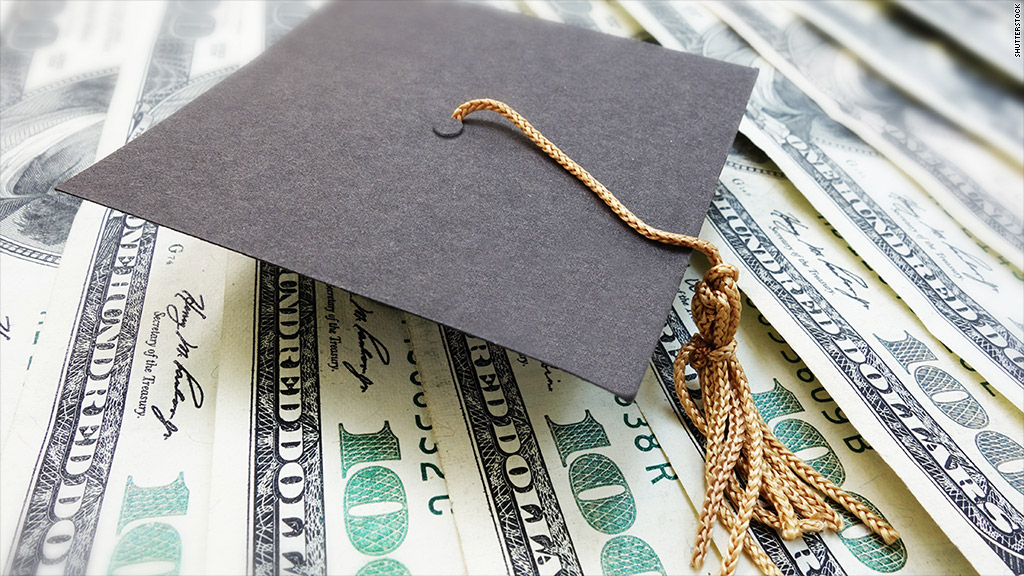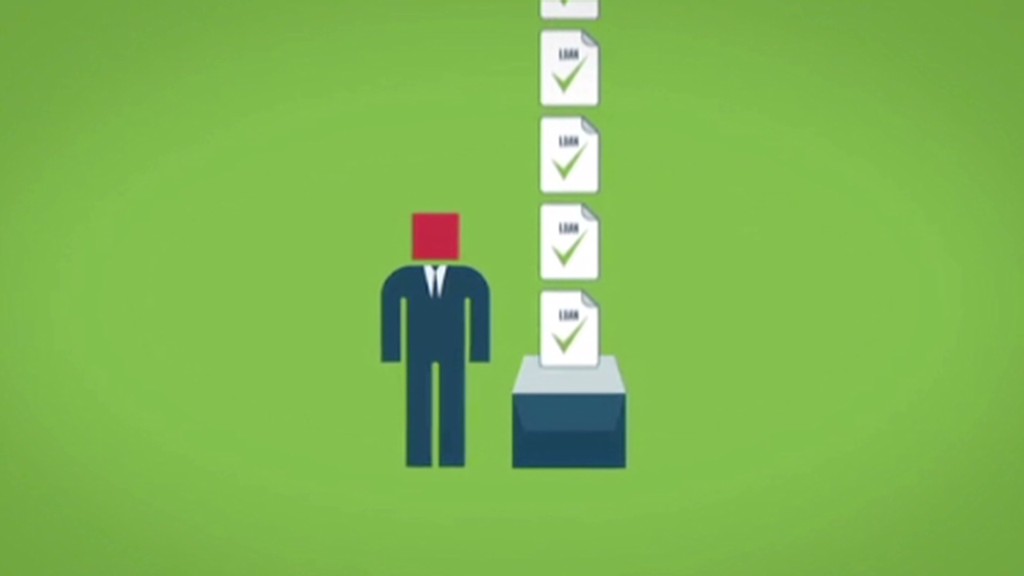
Investors are so hungry for yield in the bond market that they're giving rich college grads money to help pay off their student loans.
Social Finance, a company that uses crowdfunding to refinance student debt, just packaged a bunch of those loans and sold them.
It's an increasingly popular form of lending called peer-to-peer, or P2P. Firms like Social Finance (SoFi) and contemporaries Lending Club and Prosper pair people who want income with people looking for credit. It's an end run around traditional bank lending.
SoFi's niche is refinancing student loans. But not just any loans. The kind of schools that are most represented in the program are selective colleges like Harvard, New York University and Northwestern. Their alumni provide the money -- The students must also have a job lined up after graduation.
The loans tend to be debt for law school, business school and medical school. And while these grad students carry a median $77,000 in debt, they are also bringing in an average of $140,000 in salary a year. (*See correction below.) Their average FICO credit score? 776. It's another sign of how the credit market is only open to a select few.
Related: Big bond investor Bill Gross says rates will be low for years
Packaging these kinds of loans into bonds is a pretty recent phenomenon. SoFi and hedge fund Eaglewood Capital, which securitized a bunch of Lending Club consumer loans last year, are the only two companies to do so.

The big ratings agencies, who serve as a gatekeeper to the big bucks in debt markets, have largely stayed away from these types of loans. But they're starting to warm up.
Canadian firm DBRS has an investment-grade rating on bonds SoFi put together last year. And Standard & Poor's has also recently given SoFi its high-grade blessing.
This should lead to more bond sales, according to Morgan Parkes, head of business development and investor relations for Eaglewood Capital. She argues that more investors will be interested now that some of these securities are getting credit ratings.
For SoFi, the increased attention meant selling more bonds for more money than before. Its first deal was for $150 million in bonds that started off at a 3.75% yield. Its second deal was for $250 million in bonds, the cheapest of which priced at a 3% yield. Bond yields go down when prices rise, so the demand is clearly there for these bonds.
That's because institutional investors -- think pensions and hedge funds -- are eager for anything that yields more than the relatively puny 2.5% rate you get with a 10-year U.S. Treasury.
And big firms like BlackRock (BLK) -- which didn't buy any of the SoFi bonds -- are actively buying Lending Club and Prosper loans, lowering rates for borrowers who can access those platforms.
Related: Investors are hungrier for corporate bonds than before the financial crisis
Still, SoFi doesn't plan to start branching into loans for associates degrees or for-profit schools, where students typically have much more trouble paying off federal loans.
Instead, SoFI CFO Nino Fanlo said the company plans to find ways to follow its wealthy customer base into other areas like mortgages or other consumer loans.
Credit is harder to come by these days for subprime borrowers with less-than-optimal credit, but it's easy to get a loan if your credit's good and you have a decent income.
"If you're a prime borrower, you're paying next to nothing," said Vishal Khanduja, fixed income portfolio manager at Calvert Investment Management, which bought some of the SoFi bonds.
But there are still many people stuck trying to pay off student loans who don't have high-income jobs and advanced degrees from some of the country's best schools. And they won't be getting the same kind of help from Wall Street.
* An earlier version of this article stated the average income for borrowers was $183,000


